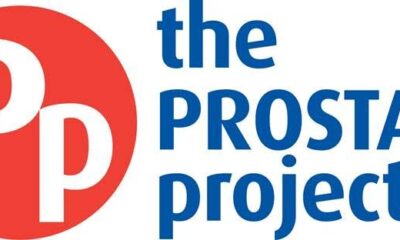Health
Major Study Finds Prostate Cancer Screening Reduces Death Risk by 13%

A significant new study has revealed that screening for prostate cancer can reduce the risk of dying from the disease by 13 percent. The research, which spanned a period of 23 years, indicates that the benefits of early detection and diagnosis outweigh the potential harms associated with screening.
The study, conducted by a team of medical experts from the European Association of Urology, followed thousands of men over more than two decades. It demonstrated a sustained reduction in mortality rates linked to prostate cancer, emphasizing the importance of regular testing for at-risk populations.
Key Findings on Screening Impact
The research found that men who underwent regular prostate cancer screening experienced significantly lower mortality rates compared to those who did not participate. The implications of these findings suggest that proactive screening measures can lead to early interventions, ultimately saving lives.
The study’s results challenge previous assumptions about the risks associated with prostate cancer screening. While some concerns have been raised regarding potential overdiagnosis and overtreatment, the data indicate that the positive effects of screening substantially outweigh any associated risks.
Dr. Mark Emberton, a leading researcher in the study, emphasized the importance of these findings. “Our research highlights that routine screening can lead to earlier detection, which is crucial for effective treatment,” he stated. The results were presented at a recent conference in the United Kingdom, where health professionals gathered to discuss advancements in cancer care.
Implications for Public Health Policy
The findings call for a reevaluation of public health policies surrounding prostate cancer screening. As more men are encouraged to participate in screening programs, healthcare systems may need to adapt to handle the anticipated increase in diagnoses and ensure that treatment options are available.
The study also reinforces the need for healthcare providers to engage patients in informed discussions about the risks and benefits of screening. Patients need to understand their options and the potential outcomes associated with screening to make well-informed decisions regarding their health.
As the medical community continues to analyze the implications of this research, it is clear that prostate cancer screening plays a vital role in reducing mortality rates. The study not only provides hope for patients but also sets the stage for future advancements in prostate cancer treatment and prevention strategies.
In conclusion, the latest findings provide compelling evidence that proactive screening for prostate cancer is an effective tool in reducing the risk of death from this prevalent disease. As healthcare providers implement these recommendations, the focus will remain on improving patient outcomes and enhancing the quality of care for those affected by prostate cancer.
-

 World3 days ago
World3 days agoCoronation Street’s Shocking Murder Twist Reveals Family Secrets
-

 Entertainment4 months ago
Entertainment4 months agoKate Garraway Sells £2 Million Home Amid Financial Struggles
-

 Entertainment3 months ago
Entertainment3 months agoAnn Ming Reflects on ITV’s ‘I Fought the Law’ Drama
-

 Health3 months ago
Health3 months agoKatie Price Faces New Health Concerns After Cancer Symptoms Resurface
-

 Entertainment3 weeks ago
Entertainment3 weeks agoCoronation Street Fans React as Todd Faces Heartbreaking Choice
-

 World4 weeks ago
World4 weeks agoBailey Announces Heartbreaking Split from Rebecca After Reunion
-

 Entertainment6 days ago
Entertainment6 days agoTwo Stars Evicted from I’m A Celebrity Just Days Before Finale
-

 World6 days ago
World6 days agoKevin Sinfield Exceeds Fundraising Goal Ahead of Final Marathons
-

 Entertainment3 months ago
Entertainment3 months agoCoronation Street’s Carl Webster Faces Trouble with New Affairs
-

 Entertainment3 months ago
Entertainment3 months agoWhere is Tinder Swindler Simon Leviev? Latest Updates Revealed
-

 Entertainment4 months ago
Entertainment4 months agoMarkiplier Addresses AI Controversy During Livestream Response
-

 Science2 months ago
Science2 months agoBrian Cox Addresses Claims of Alien Probe in 3I/ATLAS Discovery













